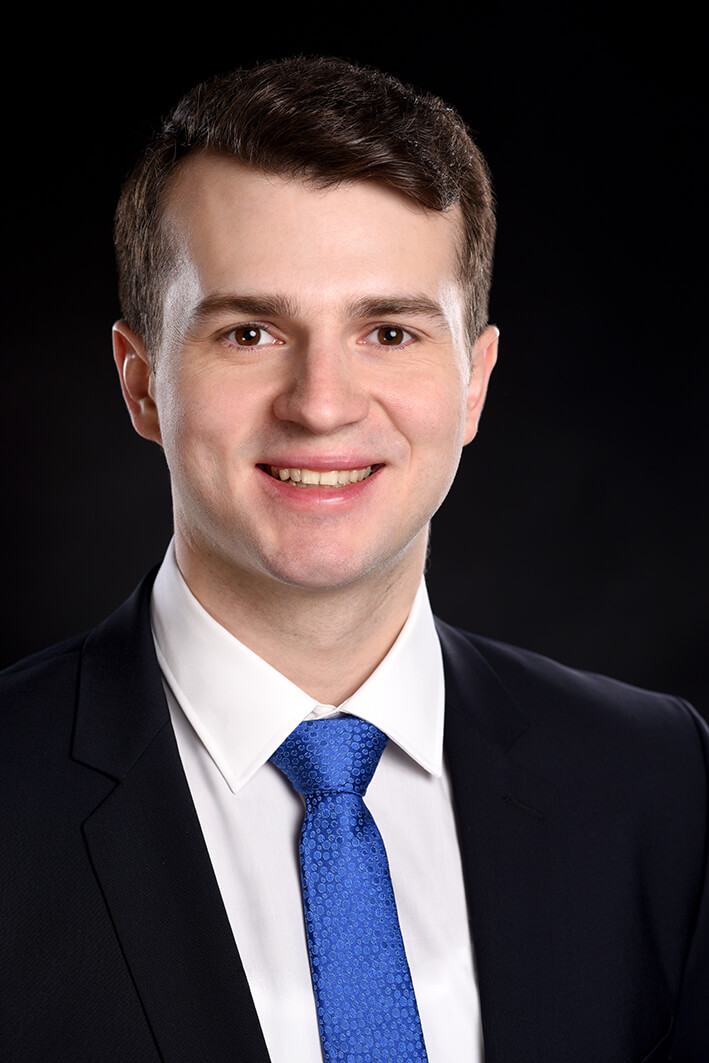PhD defence: Organic and Conventional Dairy Farming in Denmark
PhD defence
Lorenz Matthias Severin Aigner
Title of thesis
Differences between the efficiencies of organic and conventional dairy farming in Denmark
Abstract
Organic farming and the sales of organic products is rapidly expanding globally. The sector is in many regions supported and subsidised by governments. Reasons for this are the potential benefits organic management provides for society, such as increased biodiversity, improved animal welfare and positive health implications. These benefits are not typically marketed and not internalised as profit for the farmers, justifying government intervention. Especially in the context of combating climate change, research that addresses unmarketed externalities is of high relevance. This thesis focuses on the case of the dairy sector in Denmark.
The country is among the global leaders in terms of sales and production of organic products. Currently, growth of its organic dairy industry is facilitated by government programs and price premiums. However, under certain circumstances (e.g., when externalities are priced appropriately) the organic technology could be superior for many farms, even without government support. In this thesis, four studies are presented that analyse the opportunities from organic dairy farming.

First, the economic efficiencies between the two technologies are compared. Notably, the dairy sector in Denmark suffers from poor international competitiveness due to high labour and capital costs which cannot be compensated by the high technical efficiency of Danish dairy farms. However, using the Malmquist index and its components in combination with efficiency scores from data envelopment analysis, results show that the organic farming technology is on average superior and that many conventional farms could improve their efficiency by converting. In addition, the study presents characteristics of farms with potential for conversion.
Second, underlying technologies apart from organic and conventional are identified and analysed. Using a latent class model, four different classes in the Danish dairy sector are identified and compared in regard to their DEA efficiencies through a pooled analysis as well as a group difference index. The results show that two classes are significantly more efficient, characterised by higher a share of organic farms, less dependence on subsidies and by a lower labour-to-capital ratio and intensity. In addition, it shows that farms that are able to switch to a more efficient class do so mainly by reducing their reliance on subsidies and by increasing in size.
Third, the thesis develops a method to accurately calculate shadow prices of efficient farms in a DEA application. In its standard formulation, the shadow prices for corner points of the frontier are non-unique. The method developed in this thesis uses a mixed integer linear program to select for these corner-points a set of weights that is most supported by the data. This approach is developed for the weak disposability approach using directional distance functions to measure the efficiencies when undesirable outputs are included. An application to data on greenhouse gas emissions in the UK dairy sector shows that the new, more accurate, shadow prices differ substantially from those reported by linear program software.
Fourth, the differences between environmental efficiencies and shadow prices of carbon of organic and conventional dairy farms are compared. Using, and expanding, the method developed previously, the analysis shows that organic farms are on average more efficient than conventional farms when greenhouse gas emissions from enteric fermentation and manure management are included. In addition, shadow prices have been, on average, increasing over time and are lowest for conventional farms, indicating that it is cheapest for them to reduce their emissions.
Supervisor
Professor Mette Asmild, Department of Food and Resource Economics (IFRO), University of Copenhagen
Assessment Committee
Chair:
Associate Professor Søren Marcus Pedersen, Department of Food and Resource Economics, University of Copenhagen
Professor Helena Hansson, SLU, Sweden
Associate Professor Battista Severgnini, Copenhagen Business School
Master of Ceremony
Professor Wusheng Yu, Department of Food and Resource Economics, University of Copenhagen
How to participate
Place: "Skoven", Rolighedsvej 23, 1958 Frederiksberg C.
The defence is open to all.
Request a copy of the thesis:
If you are interested in a full copy of the thesis, please contact the PhD student or the PhD Secretary.
